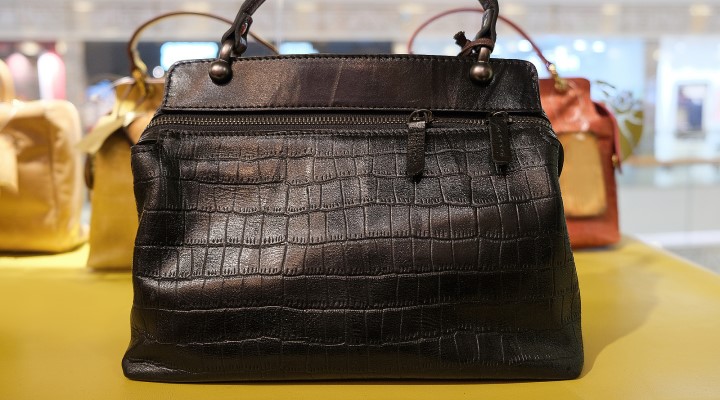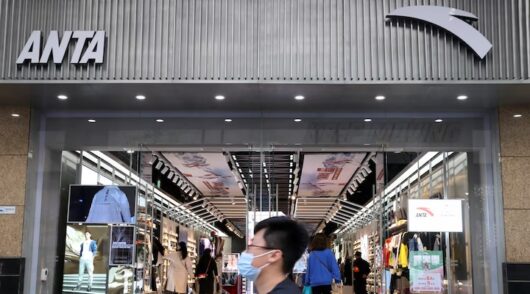Luxury fashion brand Hermès is under increasing scrutiny over what animal welfare groups have called “barbaric” crocodile farms in Australia’s Northern Territory (NT). On Tuesday, World Animal Protection Australia released footage allegedly from inside a Hermès crocodile farm, revealing the sordid conditions in which animals are kept and detailing the process of killing and skinning the creatures. The French fashion brand is planning to expand its farming of saltwater crocodiles wi
les with plans for an additional NT facility which could see up to 50,000 crocodiles farmed for their skins.
“The crocodile farming industry is grotesque and inherently cruel, where wild animals are denied a wild life or the freedom to exhibit their natural behaviours,” Ben Pearson, head of campaigns at World Animal Protection, said in a statement.
“Crocodiles are wild animals, not handbags.They are sentient beings who don’t deserve to languish in plastic-lined pens for the profits of French fashion houses.”
According to a 2021 report by World Animal Protection, the welfare of crocodiles on these farms is governed by an “outdated and inadequate” Code of Practice. Pearson said the dire conditions in wildlife trade could lead to future pandemics.
“We must accept that human wellbeing is intrinsically linked to the health of animals and the natural world.”
The charity is calling on Minister for Environment Sussan Ley to reject an export permit for the Hermès crocodile farm, saying to do otherwise would “send a message to the international community that the Australian Government believes the farming of wild animals is acceptable”.
Inside Retail has contacted Hermès for comment.
Ethical fashion revolution
The reported plans come as luxury fashion brands are increasingly moving towards more ethical fashion, swapping out animal-derived materials in favour of more humane alternatives.
Chanel, Mulberry, Karl Lagerfeld, Vivienne Westwood and Tommy Hilfiger are all transitioning away from the use of exotic skins and wild animals in their products if they haven’t already, while Valentino recently announced that it would ditch fur from its collections from next year, joining Prada, Versace, Gucci and Armani, who are all part of the global Fur Free Retailer program.
Elise Burgess, head of communications at animal welfare organisation Four Paws Australia, said the proposed farm is highly disturbing and could promote demand for exotic leather in the global market.
“Brands should be evolving their supply chains to utilise the latest in fabric choices that also meet societal expectations, and the ongoing suffering and abuse of wild animals does not fit those expectations,” Burgess told Inside Retail.
The issue of animal cruelty is an ongoing problem in fashion supply chains, but change is slowly happening.
“Hiding behind a lack of transparency, most fashion brands are completely unaware of how animals used and killed for their products are treated,” Burgess said.
Four Paws’ Wear it Kind program seeks to change that by providing educational resources to help brands move away from animal cruelty and towards kinder fashion.
Power of consumers
According to the NT Crocodile Farmers Association, Australia accounts for 60 per cent of the global trade in saltwater crocodile skins, with about two thirds of that grown and exported by the Northern Territory.
And while it’s a lucrative trade, Australian consumers are largely unaware of what’s happening in the industry, according to a World Animal Protection poll.
The research found that 74 per cent of people were not aware how Australian crocodiles were being farmed and killed for their skin and that 88 per cent didn’t know that luxury brands like Hermès and Louis Vuitton (LVMH) own most of the NT’s crocodile farms.
Burgess said greater consumer awareness of animal suffering within the fashion trade is paramount, as brands have shown that they will respond to shopper trends and demands for sustainable animal-free alternatives.
“Long term, we’ll know we’ve been successful when we go from under 10 per cent of brands having a somewhat meaningful animal welfare policy and strategy to more than half of brands tracing their animal derived materials, ensuring consumer transparency and having high impact quality policies and practices in place to ensure good welfare,” she said.
“We need to reach a tipping point, where caring properly for animals becomes business as usual – and that includes brands making commitments to reducing the amount of animal derived materials they use.”







